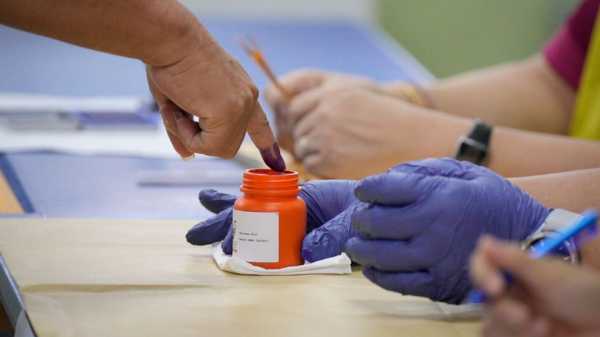
KUALA LUMPUR, Malaysia — Voting began Saturday in crucial state elections in Malaysia, where Prime Minister Anwar Ibrahim’s multi-coalition government is seeking to strengthen its hold against a strong Islamic opposition.
Queues formed outside schools and other polling stations as voters began to stream in. Nearly 9.8 million people, or about half the country’s electorate, are eligible to elect 245 assembly members in six states that contribute more than half of Malaysia’s gross domestic product.
The polls are widely viewed as an early referendum both for Anwar’s leadership and also the strength of the Islamist opposition after a divisive general election in November.
While the local elections have no direct impact on the federal government, the outcome could signal whether Anwar’s government can last a full five-year term. The two contending coalitions currently control three states each. If the opposition takes control of states led by Anwar’s bloc or otherwise has a strong showing in state polls, analysts say it will put pressure on Anwar and could rock the country's political stability.
Before Anwar, Malaysia had three prime ministers since 2018 after lawmakers switched support for political mileage.
“The stakes are high for Anwar and his leadership,” said Amir Fareed Rahim, director of strategy at political risk consultancy KRA Group. “A good showing will be a boost for the longer-term stability of Anwar’s unity government. Otherwise, there will be increased political noise that can disrupt and undermine the political authority of his government.”
Malaysia’s politics were thrown into disarray after November’s general election led to an unprecedented hung Parliament. Anwar’s Pakatan Harapan (PH) alliance won the most seats but failed to win a majority after many ethnic Malays threw their support behind the Perikatan Nasional (PN) bloc, led by former Prime Minister Muhyiddin Yassin. The PN bloc includes the conservative Pan-Malaysian Islamic Party (PAS), which emerged as the largest single party in Parliament.
At the behest of the nation’s king, rival parties came together to form Anwar’s unity government. The support of the once-dominant United Malays National Organization (UMNO) and other smaller parties gave Anwar a two-thirds majority in Parliament, but analysts say this loose alliance is perceived as unstable and needs stronger support from the Malay majority.
The polls are in Selangor and Penang, two of the country’s richest states, as well as Negeri Sembilan, which were ruled by Anwar’s PH alliance. Three poorer Malay heartland states — Kedah, Kelantan and Terengganu — were controlled by PAS. Most political observers predict a status quo but believe there will be increased support for the PN opposition.
Voting ends at 6 p.m. (1000 GMT) and the results will be known later Saturday.
Anwar, 76, has zig-zagged across the country pitching the appeal of political stability and his concept of a progressive government. He marked his 76th birthday on Thursday by giving fiery speeches late into the night at political rallies in Selangor.
In a Facebook video Friday, Anwar urged Malaysians to vote wisely and opt for unity for a stable future and a strong economy. He has said a win for his unity government will save the country from racial and religious bigotry, and appealed for time for his government to deliver on its promises for reforms.
Many in the Malay community view Anwar as too liberal and fear their Islamic identity and economic privileges under a decades-old affirmative action program could be chipped away. By law, all Malays are Muslims and Islam is the official religion in Malaysia. Malays make up over 2/3 of Malaysia’s 33 million people, with large Chinese and Indian minorities.
The rise of PAS, which espouses a theocratic state and has long positioned itself as a defender of Islam and Malays, partly reflected a growing religious conservatism among Malays. Despite a poor economic track record in the three states it rules, PAS retained loyalty through its religious agenda.
In a Facebook post this week, PAS hard-line leader Abdul Hadi Awang implied that the opposition can topple Anwar’s government if they sweep all six states.
Analysts said Anwar would have time to build his political base before the next general election in 2027 if he can keep the three states under his alliance. If Anwar fails, it could prompt allies in his government to rethink their partnership. A shift in allegiance could plunge the country into new turbulence, analysts said.
___
Find more of AP’s Asia-Pacific coverage at https://apnews.com/hub/asia-pacific
Sourse: abcnews.go.com






